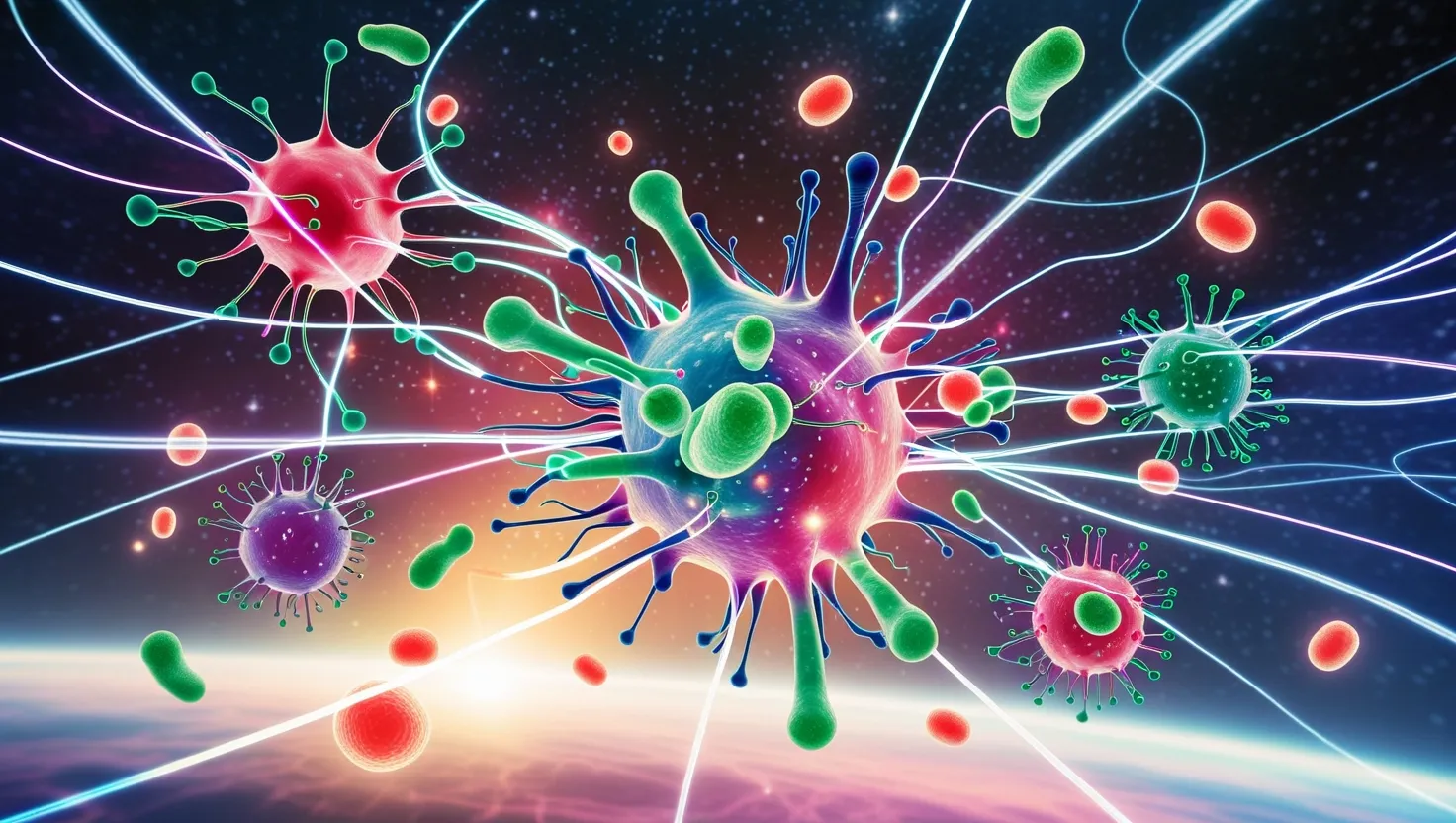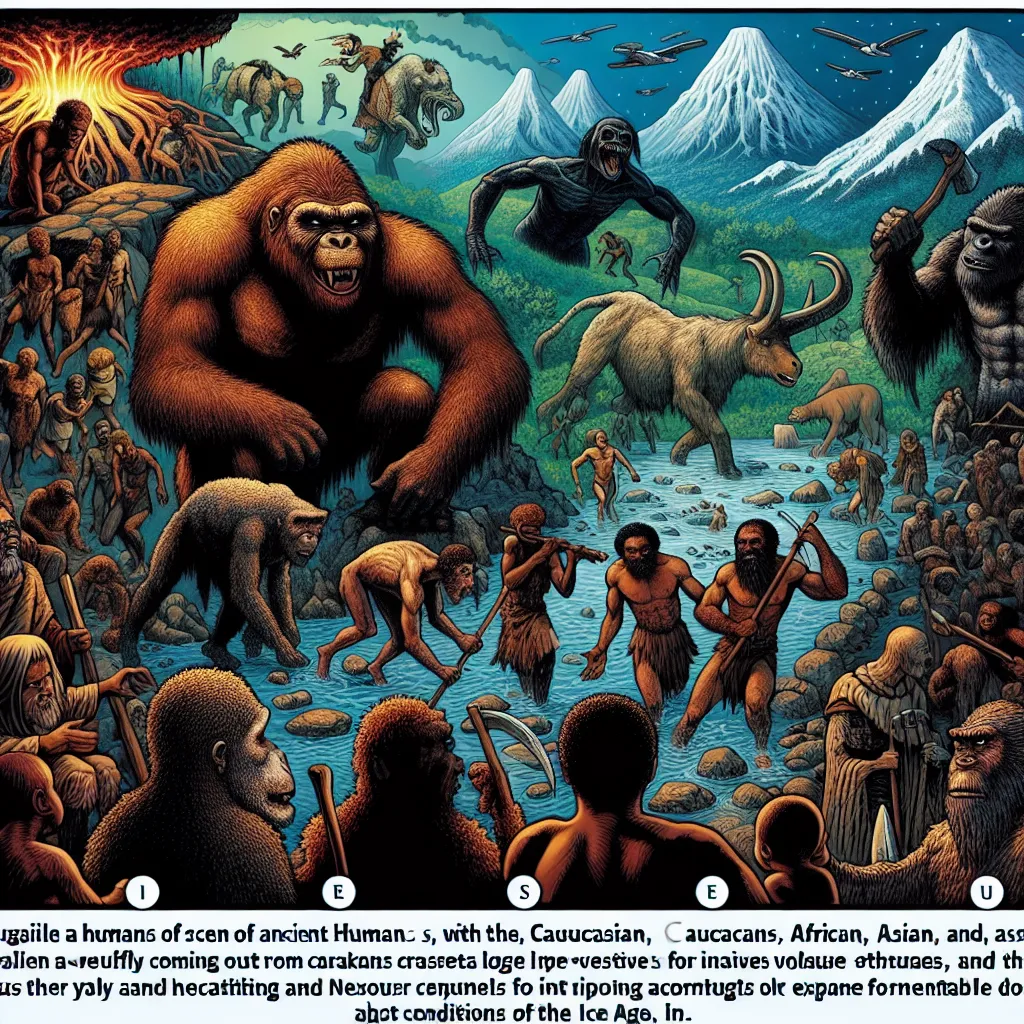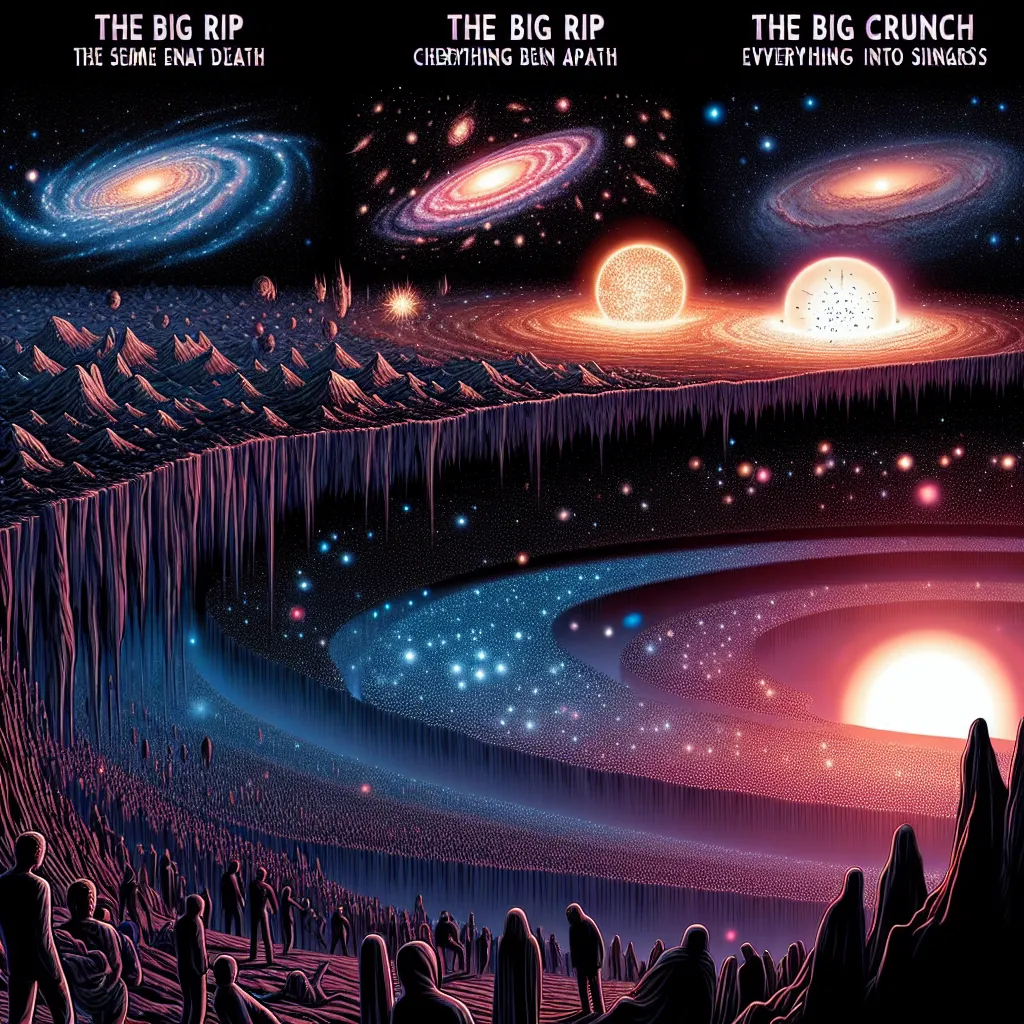Imagine a world where the trillions of bacteria in your gut are not just passive inhabitants, but active participants in shaping your reality. This mind-bending concept suggests that our gut microbiome could be more than just a digestive aid; it might be a quantum entangled network that influences our decisions, perceptions, and even our connection to the world around us.
To delve into this intriguing idea, let’s start with the basics. The human gut is home to a vast ecosystem of microorganisms, collectively known as the gut microbiome. These bacteria play a crucial role in our health, from digesting food to producing vitamins and regulating our immune system. However, recent research and theoretical frameworks propose that their influence could extend far beyond these traditional roles.
One of the key concepts here is quantum entanglement, a phenomenon where particles become connected in such a way that the state of one particle is instantly affected by the state of the other, regardless of the distance between them. While this is well-documented in the realm of physics, its application to biological systems is a relatively new and exciting area of study.
Researchers have begun to explore whether biological systems, including bacteria, can exploit quantum mechanics to their advantage. For instance, a study on green sulfur bacteria revealed that these microorganisms use quantum effects to protect themselves from oxygen damage. This suggests that some bacteria are capable of leveraging quantum mechanics for survival, which raises the question: could our gut bacteria be doing something similar?
The idea that our gut microbiome could act as a biological quantum computer is both fascinating and daunting. A quantum computer processes information in ways that classical computers cannot, using quantum bits or qubits that can exist in multiple states simultaneously. If our gut bacteria are quantum entangled, they might be processing information in a similarly complex and interconnected manner.
This concept is further supported by the work of researchers like those at Terra Quantum and Unilever, who are using advanced quantum machine learning techniques to analyze complex skin microbiome data. While their focus is on skin health, the principles they are uncovering could have broader implications for understanding how microbiomes interact and process information.
For example, the collaboration between Terra Quantum and Unilever involves using quantum machine learning to decode the intricate data of the skin microbiome. This approach blends the power of quantum computing with classical machine learning, enabling deeper insights from limited data and enhancing prediction accuracy. If such methods can be applied to the gut microbiome, it could reveal a sophisticated network of microbial interactions that go beyond mere digestion.
The Keio University Human Biology-Microbiome-Quantum Research Center (Bio2Q) is another hub of innovation in this field. Here, researchers are integrating biology, microbiome studies, and quantum computing to understand the complex interactions between humans and their microbiome. Their mission is to develop novel research techniques that could lead to groundbreaking progress in human health and longevity.
But how could this microbial network influence our reality? One possibility is through the subtle guidance of our decisions and perceptions. Our gut feelings, often dismissed as mere intuition, might be more literal than we think. The gut-brain axis, a well-documented connection between the gut and the brain, could be the conduit through which our microbiome influences our thoughts and actions.
Imagine that the bacteria in your gut are not just passive passengers but are actively communicating with your brain, shaping your mood, energy levels, and even your cognitive functions. This is not as far-fetched as it sounds; studies have shown that alterations in the gut microbiome can lead to changes in behavior and mental health.
The notion that our gut bacteria could be tapping into parallel universes or influencing our reality through quantum effects is a step further into the realm of speculation, but it’s an intriguing one. Quantum mechanics suggests that reality is not fixed but exists in a state of superposition, where multiple outcomes are possible until observed. If our microbiome is quantum entangled, it could potentially interact with this multifaceted reality in ways we cannot yet fully comprehend.
However, it’s important to ground this speculation in the current state of scientific knowledge. While the idea of a quantum microbiome is captivating, it remains a theoretical framework rather than a proven fact. The scientific community is just beginning to explore these concepts, and much more research is needed to understand the true extent of microbial influence on our lives.
In conclusion, the idea that our gut microbiome could be a quantum entangled network influencing our reality is a mind-bending theory that challenges our traditional understanding of biology and physics. As researchers continue to explore the intersection of microbiology and quantum mechanics, we may uncover new and profound ways in which our bodies and the world around us are interconnected.
So, the next time you feel that gut feeling, remember that it might be more than just a metaphor. It could be your microbiome, subtly guiding you through the complexities of life, using quantum effects that we are only beginning to understand. Whether this is the future of science or just an imaginative leap, one thing is certain: the relationship between our bodies and the microscopic world within us is far more intricate and mysterious than we ever imagined.






